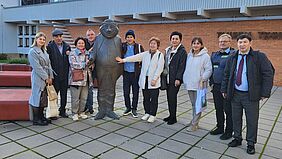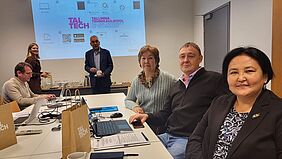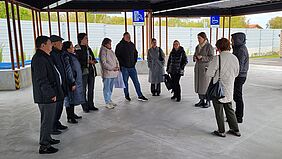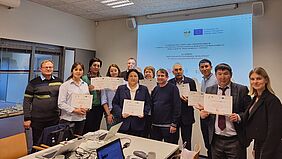Svetlana Saidensal and Elizaveta Diatlova represented the European Project Center of Hochschule Wismar during a meeting of the Erasmus+-Project “UnWaste” in the Estonian capital Tallinn. During the visit, that was organized by professor Wolfgang Gerstlberger and Tarmo Tuisk from the Tallinn University of Technology, the focus was on getting knowledge about Estonian experiences in waste reduction, waste distribution and recycling. Since the project “UnWaste” has as goal to develop and implement a master program “Waste management” especially the partners from Kazakhstan gained crucial information while the group visited the municipal enterprise of Tallinn and the new Lilleküla Circular Economy Center, they familiarized themselves with the Estonian approach of waste collection and the recycling of raw materials.
Also several experts on the matter of waste and sustainability held talks for the participants. The Kazakh partners presented the current state of the development of the Masterprogramm “Waste Management” in their home country. At the end there was even time left to discuss further cooperations and new project ideas.
The overall objective of the project “UnWaste” is to influence the current situation by developing engineering-based waste management curricula at master's level and raising awareness of circular economy by developing new curricula in higher education institutions. This project would enhance practice-based learning to ensure parallel development of soft skills (teamwork, communication, management, decision making) and hard skills (waste management) and provide evidence of problem solving to future employers. Main target group: engineering students. Indirect beneficiaries of the project are: Industry partners, non-profit organisations and policy makers.




